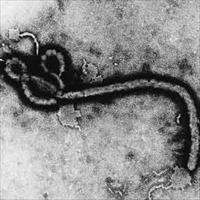DRC: Ebola outbreak “under control”

An epidemic of the haemorrhagic Ebola fever reported in Mweka and Luebo health zones in the southern province of Kasai Occidental is over, the Democratic Republic of Congo (DRC) health ministry said.
Some 32 cases, including 15 deaths, had been reported since 15 December, ministry spokesman Augustin Mopipi Mukulumania said on 16 February.
The outbreak, according to the World Health Organization (WHO), was confirmed by laboratory tests at the Institut National de Recherches Biologiques in Kinshasa, the Centre International de Recherches Médicales de Franceville in Gabon, and the National Institute for Communicable Diseases, South Africa.
Mathieu Kamwa, WHO representative in DRC, said no cases of the disease had been reported in the past 42 days. The last infected person died on 1 January and the period since then is more than double the maximum incubation period for Ebola.
He called for the sensitisation of local communities about the disease. "The local populations must change certain practices," he told IRIN, citing the collection of carcasses of dead animals, poor hygiene and the consumption of monkey meat.
Many people who catch Ebola do so after eating or handling dead animals they find in the forest. Early symptoms include vomiting and a severe fever. As the disease takes over the body, it liquefies internal organs and causes haemorrhaging from multiple orifices.
Depending on the strain of the virus, Ebola is fatal in up to 90 percent of cases. There is no cure or vaccine, so containment and early detection are crucial to minimising casualties.
 Back and Next - Back and Next
Back and Next - Back and Next See Also - See Also
See Also - See Also